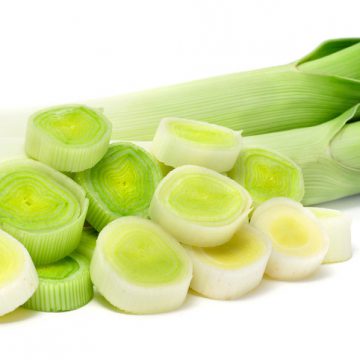Interreg project for the enhancement of vegetable by-products
The industry itself is becoming more and more interested in developing the use of vegetable by-products. The Food from Food project stimulates, supports and accelerates innovations in the food and agricultural industries for enhancing vegetable by-products to foodstuffs. Bodec is proud to be a partner in this international Interreg Vlaanderen-Nederland project. With financial support, participants can test their products and processes in one of our facilities, so that they can expand their markets internationally.
The challenge
Currently one third of all vegetable by-products generated during harvest, processing and production in the industry goes to waste or is used as animal feed. The Food from Food project looks for opportunities to eliminate waste and to extract more foodstuffs from these by-products. Food from Food aims to develop as many business cases as possible. Of course each party will have its own interests and goals, which can be realised by working together.
The approach
Food from Food was started on the 1st of January 2017 and makes it possible to develop new foodstuffs and ingredients with a nutritional and functional value from raw materials like potatoes, vegetables and fruits. The amount of waste is reduced and sometimes eliminated altogether. Bodec guides the applicants through the development of their business case and cooperates intensively with the other Food from Food partners, like the HAS Hogeschool educational institution. The project will end on the 31st of December 2019.
The results
Bodec helped to develop various business cases. Here are three examples of partnerships that have already had great success:
Leek leaves: from by-product to valuable ingredient
As consumers only use the white part of the leek, the green leaves are usually wasted. In the border area between the Netherlands and Belgium about 80 to 100 kton leek waste material is disposed of every year. However, the leek leaves have many useful and valuable components. Project participant Groentenhof wanted to extract these from the waste stream. Bodec helped to develop a process whereby leek leaves are pressed into a juice. This juice is then dried to a powder, so that it can be used as an ingredient for the food industry. After pressing, there were still some waste fibres left over with strong water-binding properties, that turned out to be ideal for the preparation of foodstuffs, like sausages. We also investigated if the concentration of other components in the leek leaves could be increased by fermentation, as in the production of sauerkraut. Potentially this product can be used as a preservative.
Food fibres from citrus peels
Every year in the Netherlands 250 million kilo citrus peels are thrown away. PeelPioneers developed a biorefinery concept to convert this ‘waste’ to food and feed ingredients and chemical building blocks. The participants of this Food from Food project were Bodec, PeelPioneers, FI&S, Brightlabs, ILVO and Food Tech Park Brainport and we investigated how citrus peel can be transformed into food fibre for the food industry, with applications for bakery products, meat (replacements), soups and sauces. Our focus was to find out how the fibres could be extracted as efficiently as possible. We also tested various applications that made use of these fibres.
New application for carrot fibres
vanRijsingeningredients is a specialist in processing and enhancing vegetable by-products. This company produces carrot balls and carrot juice from carrots that are not suitable for retail sales. These processes still generate a lot of carrot fibre waste, and vanRijsingeningredients wanted to enhance that waste by participating in a Food from Food project. Bodec developed a process for extracting valuable raw materials from the carrot fibres. Read our case study vanRijsingeningredients: new factory extracts even more from vegetables and find out more about this remarkable project.



